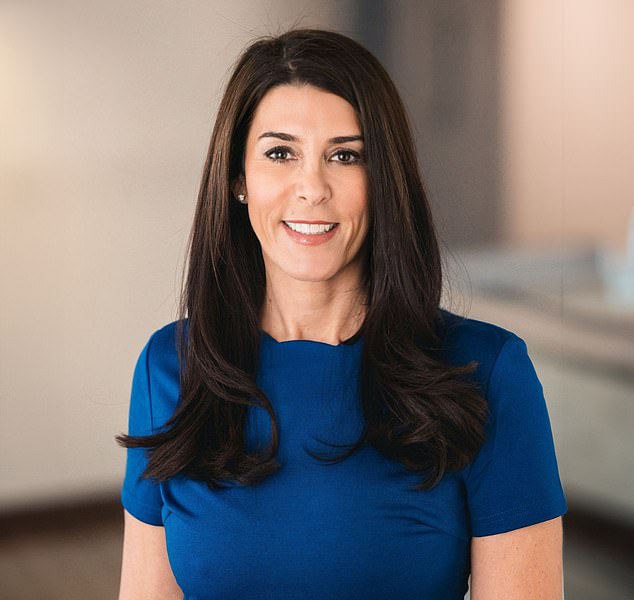Aging American parents are increasingly providing substantial financial support for their adult children, some of whom are well into their forties, two financial advisors have told the Daily Mail.
The motivations for doing so vary greatly from client to client, they said, but it’s not just wealthy people sending their pampered children money for rent.
Low- and middle-income parents also feel the need to help out their kids, even if it’s to their own detriment, according to Leslie Tayne, the founder of New York-based debt relief law firm Tayne Law Group.
She has spent 25 years helping people and businesses manage out-of-control debt. She told the Daily Mail that the phenomenon of parents helping their kids past their early 20s is much more common than one might think.
A March report from Savings.com found that about 50 percent of parents give regular financial help to children aged 18 to 44 years old. They send an average of $1,474 per month – six percent more than last year.
‘I have a client’s mother that pays all his rent and his car. And he’s got to be in his late forties. He was married and got divorced,’ Tayne said. ‘I think he’s looking to get out of paying his obligations. She pays for everything.’
Another client of Tayne’s bought a house for her adult son, who later wasn’t able to make the mortgage payments because one of his business relationships soured.
The house, which is in the child’s name, has now lapsed into foreclosure and the mother is now selling her old home because she can’t afford to live where she was living.

Leslie Tayne has 25 years of experience advising individuals, families and businesses on how to navigate substantial debt
Your browser does not support iframes.
Most of the time, though, her clients are sending their children money for things like their student loans, their credit card bills or rent. Some simply give their kids cash just to get them through the week.
The unfortunate irony is that most of her clients dig themselves into a debt hole while trying to keep their kids’ households in the black.
‘What ends up happening is, let’s say somebody’s on a fixed income, and now they’re in their sixties or seventies, and their 40-year-old needs money. The 40-year-old has a young family, so they feel badly that the grandchildren are not getting what they need,’ Tayne explained.
‘So, they end up giving money to the adult children in order to assist with the supporting of the younger children. Usually, that knocks the budget out of whack, and they end up with credit card debt,’ she added. ‘It’s very common to see that happen in that particular age group.’
The people Tayne consults with help their children with ‘good intentions’ but are often suckered into consistently sending money because they feel guilty or because they initially thought it would be a temporary situation.
According to the Savings.com survey, nearly 50 percent of parents have sacrificed their financial security to help their grown kids financially, and most supporting parents feel obligated to help their kids with money.
Eighty-three percent of parents who support their adult children say they are helping with groceries. And 65 percent are paying for cell phone plans.
‘Eventually they run out of money,’ Tayne said.

Ben Waterman, a qualified investment advisor in the United Kingdom, deals with many American clients
Ben Waterman, a qualified investment advisor in the United Kingdom, has a far different experience, as he caters to a far wealthier clientele who also want the best for their adult children.
In 2021, he founded Strabo, a digital wealth management platform that allows users to track their net worth and receive investment advice from either an AI helper or human financial planners.
Americans make up about 60 percent of his customer base, which has grown to about 3,000 active users, he said.
He described Strabo users with the acronym, HENRY, which means ‘high earning, not rich yet’.
‘Often, our clients are too rich to want an app to tell them not to buy coffee every day and save cents, but they’re not wealthy enough to have a family office or a really dedicated group of professionals. They sit somewhere in the middle, which is quite an underserved segment,’ Waterman said.
High-net-worth customers use the tool to bring their array of brokerage accounts, retirement accounts and bank accounts into one place so they can more easily track everything.
As such, Waterman is in the unique position of being able to see exactly what his clients spend their money on and what goals they’re aspiring to, especially if they use the company’s scenario analysis tool for milestones like having children or retirement.
‘I see these scenario plans, and we’ve got people that are in their sixties who are still planning children’s weddings and holidays for kids that are in their forties,’ he said.
Your browser does not support iframes.
He said he’s seen parents drop as much as $250,000 for their child’s wedding, though it is much more common for him to see them paying their rent or buying them a house.
Through his platform’s client data, he has also noticed that many adult children are overspending allowances given to them by their parents.
‘The most shocking I’ve seen is a woman, probably mid-thirties, with an allowance of $25,000 a month, and she would go over it most months,’ Waterman said.
Other Strabo users double or even triple whatever their kid’s salary is. It’s their way of ensuring their child still has to be productive while also ensuring they have a substantial cushion.
Both Tayne and Waterman said their clients’ instinct to help their children is deeply ingrained, whether they have a nest egg or they are in debt. That does not mean their struggles resemble one another in the slightest.
‘There are very wealthy parents that that will support adult children or buy things for them… In my case, the people that I see have run out of money and run out of credit.’
Waterman is dealing with people who have a net worth in the $5 million range, with a few outliers above that, he said.
Predictably, they are not concerned that their accounts will be drained to zero by supporting their children, rather they want make sure they don’t sap them of all their ambition.

A 2025 report from Savings.com found that about 50 percent of parents give regular financial help to their adult children
‘There’s this balance they try and strike where they obviously want to do some estate planning and optimize their affairs in a tax efficient manner to make sure they pass their money down to their kids, but equally, they don’t just want to give their kids a massive windfall,’ he said.
Tayne, on the other hand, has conversations with her clients about establishing healthy boundaries with their adult children and explaining to them what they can and cannot afford.
‘They need to set a limitation and say, “I’m willing to assist you with this, but maybe I’m not willing to assist you with that,”‘ she said. ‘That often doesn’t happen. Some sort of fear factor or guilt factor interferes with that, which is not an uncommon spoke in the wheel of debt.’
